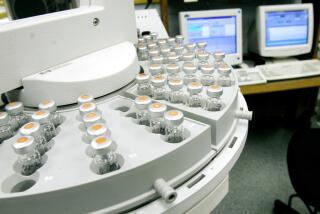Coroners Blamed for Preventing Organ Donations
- Share via
CHICAGO — About 1,000 people a year may be going without lifesaving transplants because medical examiners refuse to release organs from the dead, usually for no good reason, a study indicates.
Thousands of people die each year awaiting organs, and many more linger on waiting lists, hoping that organs will become available.
The study did not try to estimate directly the number of lives lost because of medical examiners’ refusal to release organs, but most transplants are reserved for people with terminal or potentially deadly conditions.
Some medical examiners believe that they might lose needed evidence in legal cases if they release organs, the researchers said in today’s issue of the Journal of the American Medical Assn.
However, in areas of the country where medical examiners routinely release organs, apparently no legal case has ever suffered, the researchers said.
“There’s no reason for this loss of human life to protect the judicial system. It’s not necessary,” said Teresa Shafer, lead author of the study and regional director of the LifeGift Organ Donation Center of North Texas in Ft. Worth.
Some medical examiner’s offices may lack the money or staff to tackle the extra work involved in releasing organs, such as having a medical examiner attend the surgery in which the organs are removed, Shafer said.
The study found that the rate at which medical examiners denied organ releases increased 65% from 1990 to 1992.






